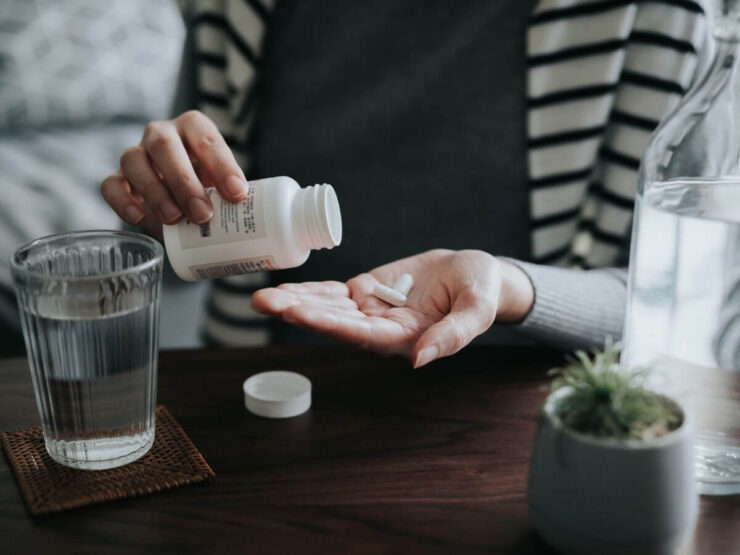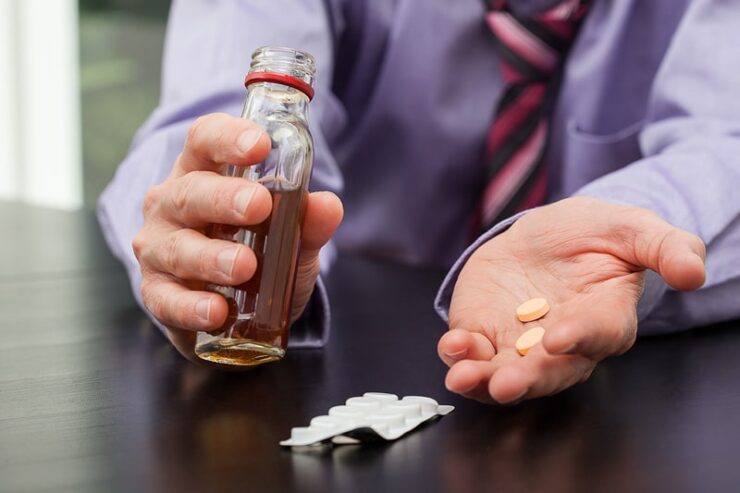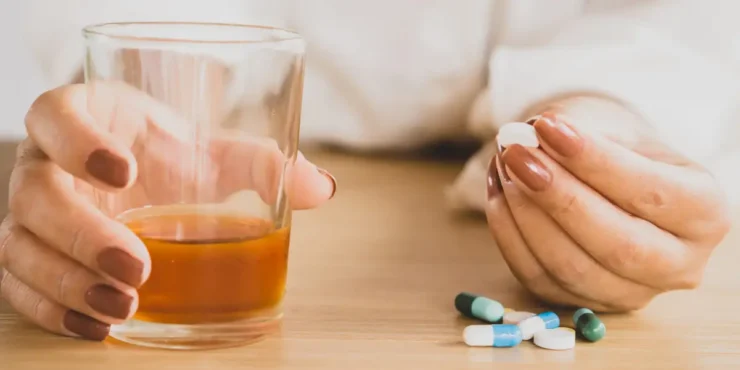When it comes to the critical and potentially risky topic of mixing medication and alcohol, it’s always wise to err on the side of caution and prioritize safety. However, the situation becomes a bit more nuanced and warrants further discussion when considering the combination of amoxicillin, a commonly prescribed antibiotic, with alcohol.
In this enlightening and informative article, we aim to provide a comprehensive understanding of the potential effects that may arise from the simultaneous use of amoxicillin and alcohol, diving deep into the subject matter and ensuring that you have all the necessary details to make informed decisions regarding your health and well-being.
By drawing upon reliable and reputable sources, we will explore the possible interactions between amoxicillin and alcohol, shedding light on the potential risks and considerations that should be considered. So, let’s embark on this knowledge-filled journey as we unravel the intricacies of this important health-related topic.
What Is Amoxicillin?

Amoxicillin, a frequently recommended antibiotic from the penicillin group, is renowned for its effectiveness against bacterial infections such as ear conditions, lung infections, dental complications, and gastric ulcers.
This powerful drug operates by stunting bacterial growth, thereby eliminating the infection and fostering recovery. Thanks to its wide-ranging applicability, amoxicillin has emerged as a popular option among medical practitioners globally, offering relief and enhancing the well-being of numerous patients.
The Interaction Between Amoxicillin and Alcohol
The big question that often arises is: can you drink alcohol while taking amoxicillin, an antibiotic commonly prescribed for various infections? Well, according to the NHS, the answer is yes, you technically can consume alcohol while on this medication.
However, it’s important to note that just because you can doesn’t necessarily mean you should. Let’s delve a little deeper into this topic and explore the potential risks and considerations associated with combining amoxicillin and alcohol.
Risks of Combining Amoxicillin and Alcohol

Although consuming alcohol while on amoxicillin is typically seen as less risky compared to other medications, prudence is still necessary. Both alcohol and amoxicillin can provoke similar adverse reactions, including digestive discomfort, vertigo, and lethargy.
These symptoms can intensify when both are taken together, potentially causing heightened discomfort or even accidents due to diminished focus or coordination. As such, it is recommended to avoid alcohol while undergoing treatment with amoxicillin to guarantee maximum safety and health.
Furthermore, heavy intake of alcohol can impair your immune system by inhibiting the creation of cells and antibodies that combat infections. It also leads to dehydration, which can obstruct your body’s capacity to eliminate toxins and contaminants, thereby weakening your immune defense.
Consequently, you might become more prone to infections and witness prolonged healing durations. It’s vital to recognize the harmful impacts of alcohol on your immune system and give precedence to preserving a wholesome lifestyle.
What the Research Says: Amoxicillin and Decreased Alcohol Consumption?
Fascinatingly, recent evidence indicates that two commonly used antibiotics, amoxicillin and amoxicillin-clavulanic acid, may reduce alcohol consumption. Although the precise mechanisms underlying this intriguing phenomenon remain uncertain, preliminary studies have yielded promising outcomes.
Nevertheless, it is crucial to acknowledge that a more thorough investigation is required to completely grasp the implications and establish a causal link between these medications and alcohol consumption. This fascinating discovery paves the way for new avenues of exploration and underscores the significance of further inquiry.
Side Effects of Amoxicillin and Alcohol

As with all pharmaceuticals, amoxicillin can potentially cause certain side effects that users should be mindful of. These may encompass feelings of nausea, episodes of vomiting, occurrences of diarrhea, and skin reactions like rashes. It’s crucial to understand that these manifestations are typically mild and often diminish as the body acclimates to the drug.
Nonetheless, prudence is advised when considering alcohol consumption during amoxicillin treatment, as alcohol could potentially exacerbate these side effects. Always seek advice from a healthcare expert for tailored recommendations and to address any uncertainties or queries related to medication intake.
Be Cautious
While it’s generally considered safe to consume a moderate amount of alcohol while taking amoxicillin, it’s important to note that individual responses to medication and alcohol can vary. Dosage, frequency, and overall health can influence the potential interactions and side effects. Therefore, it is always advisable to consult with a healthcare professional to address any concerns and ensure the best course of action for your specific situation.
While it may be tempting to indulge in a glass of wine or a beer while taking amoxicillin, it is important to remember that your health should always take precedence. Prioritizing your well-being can ensure a faster and more effective recovery.
In specific scenarios, it can be more prudent to refrain from alcohol consumption and focus on giving your body the necessary rest and attention for recuperation. By making this mindful choice and committing to upholding your general health, you invest in a promising future, allowing yourself the joy of indulging once you’ve fully recovered. This considerate strategy fosters a healthier way of life and guarantees you can thoroughly enjoy and cherish life’s delights to their maximum potential.
In Conclusion – Amoxicillin and Alcohol: How does it affect you?

It’s crucial to bear in mind that consuming alcohol can significantly affect the effectiveness of your immune system in fighting infections. When alcohol is taken alongside amoxicillin, it can potentially amplify the adverse effects of the medication, making it less efficient in treating the intended condition. Therefore, it is advisable to exercise caution and refrain from consuming alcohol while on amoxicillin to ensure optimal health outcomes.
While it is generally understood that enjoying a moderate amount of alcohol may not lead to substantial harm, it is advisable to exercise caution and be mindful of the potential consequences when combining amoxicillin and alcohol.
Doing so can ensure the optimal effectiveness of your prescribed treatment, minimize any potential risks, and contribute to your overall well-being and health. It is always best to consult your healthcare provider for personalized guidance and recommendations regarding your situation, and if you find yourself abusing this drug, professional help from treatment centers is always available.

